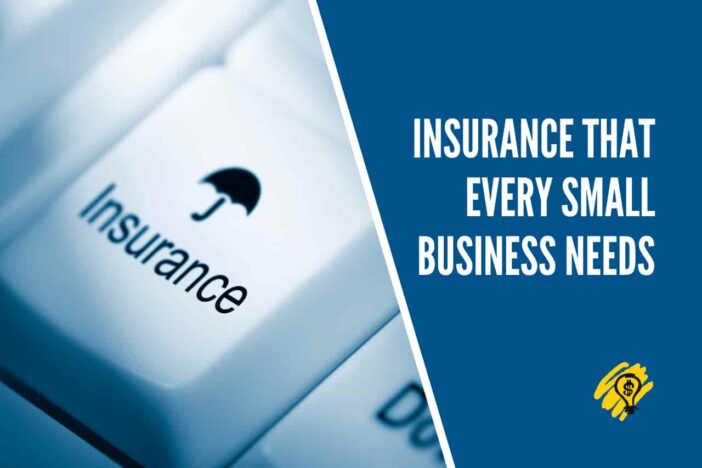Small business owners are scrappers when it comes to their plans for success. For such major plans and their business to thrive, they’ll want a degree of asset protection. So, a question that a lot of small business owners come to after laying out their master plan is how much insurance they will require.
Running a business is like driving a car because several states require at least an amount of insurance to do so. Small business owners not only have to abide by these requirements but also in a way that suits their budget and industry. Of course, it also helps to go above and beyond the requirements.
Let’s look at all the commercial insurance needed to run a small business – both required and optional.
Every Business Needs This Insurance to Operate
Business insurance laws differ from state to state, but there are three different types of commercial insurance that every business, large or small, operates with. Not doing so can either result in legal penalties or even bankruptcy. Businesses have to operate with the following insurance:
- General liability insurance – Like how nearly every driver has to carry good liability car insurance, businesses are usually required to carry their own liability insurance. This is to protect the policyholder financially if claims are filed by those who have been injured due to fault or property damage. This can be the case if a customer or guest is injured on a business’ grounds and their medical bills need covering.
- Professional liability insurance – While general liability insurance covers a business during causal hours, professional liability coverage is required for protection while on the job. This can be due to an accounting firm’s error or a botched on-site job, for example. Every business provides a service or product, and if something goes wrong with them, professional liability Errors and omissions insurance is another name for this.
- Workers’ compensation insurance – As a business owner, you have the responsibility to look out for your employees. If they are injured on the job or get sick, they’ll need the appropriate treatment. Workers’ compensation helps provide this, so businesses don’t go broke while doing so.
Other Types of Small Business Insurance
The aforementioned business insurance in the previous section is often required in the majority of states. At the same time, there are several other different types of insurance for businesses, large and small, that can broaden their financial protection in other sectors of their operation. These business coverages are:
- Business income insurance – There are times when a business may not be able to operate. This can be due to weather, criminal, or circumstantial damage. Business income coverage helps compensate for any lost income the business can’t operate as usual. An informal name this insurance has is “business as usual” coverage.
- Commercial property insurance – Business owners will naturally want to protect their headquarters whether they rent or own them. This not only covers the structure itself but also any permanent features such as work computers at the office from theft or damage.
- Commercial car insurance – If your business relies on vehicles to complete the workday by making deliveries or transporting equipment to a job site, then those car(s) will need commercial insurance to be fully insured when used for commercial purposes. The basic commercial car insurance will cover any damages that employees cause while driving.
- Data breach insurance – Businesses that electronically store the information are at risk for cyberattacks wherein their clients’ information can be stolen. This is precise what data breach insurance is for. This helps cover the costs of notifying the clients, running a public relations campaign, and credit monitoring services. In the digital business world, cyber liability insurance is a must-have.
- Commercial umbrella insurance – An umbrella insurance policy extends coverage to more high-valued assets. This means that claims greater than the policy’s limit can be covered by umbrella coverage.
- Employment practices insurance – Claims of sexual harassment, discrimination, and wrongful termination can cause some damage in the professional workplace.
Commercial Car Insurance For a Small Business
As previously mentioned, car insurance isn’t just required for personal vehicles. When a car or truck is used for work purposes, the personal car insurance policy becomes void and doesn’t cover any damage or claims that occur during this time. You will need commercial truck insurance.
Commercial car insurance fills the gap in this regard. Even Uber and Lyft drivers that use their own cars for work have to get commercial car insurance. Otherwise, they wouldn’t be covered when active on the app. Commercial car insurance can be bought from any national or local insurer. It helps to have them be based out of the state your business is based in.
Cost of Small Business Insurance
Business insurance is something that adds up with each coverage on the policy. For starters, a business owner’s policy is the best place for a small business owner to start building their coverage. This combines all the required business insurance of general liability, commercial property, and business income insurance. Worker’s compensation and the others will have to be bought separately as add-ons. A business owner’s policy can cost an average of $1188 a year or around $99 a month. Worker’s compensation tends to cost around $111 a month or $1332.
The cost of commercial car insurance depends on the type of vehicles you insure, along with your business and employees’ driving records. With all that being said, the smartest people in business always have a budget set for their insurance so they can not only afford it but also still be able to profit. The best way to shop for insurance is to get multiple quotes from both local and national insurers to find the best rates in your area.



